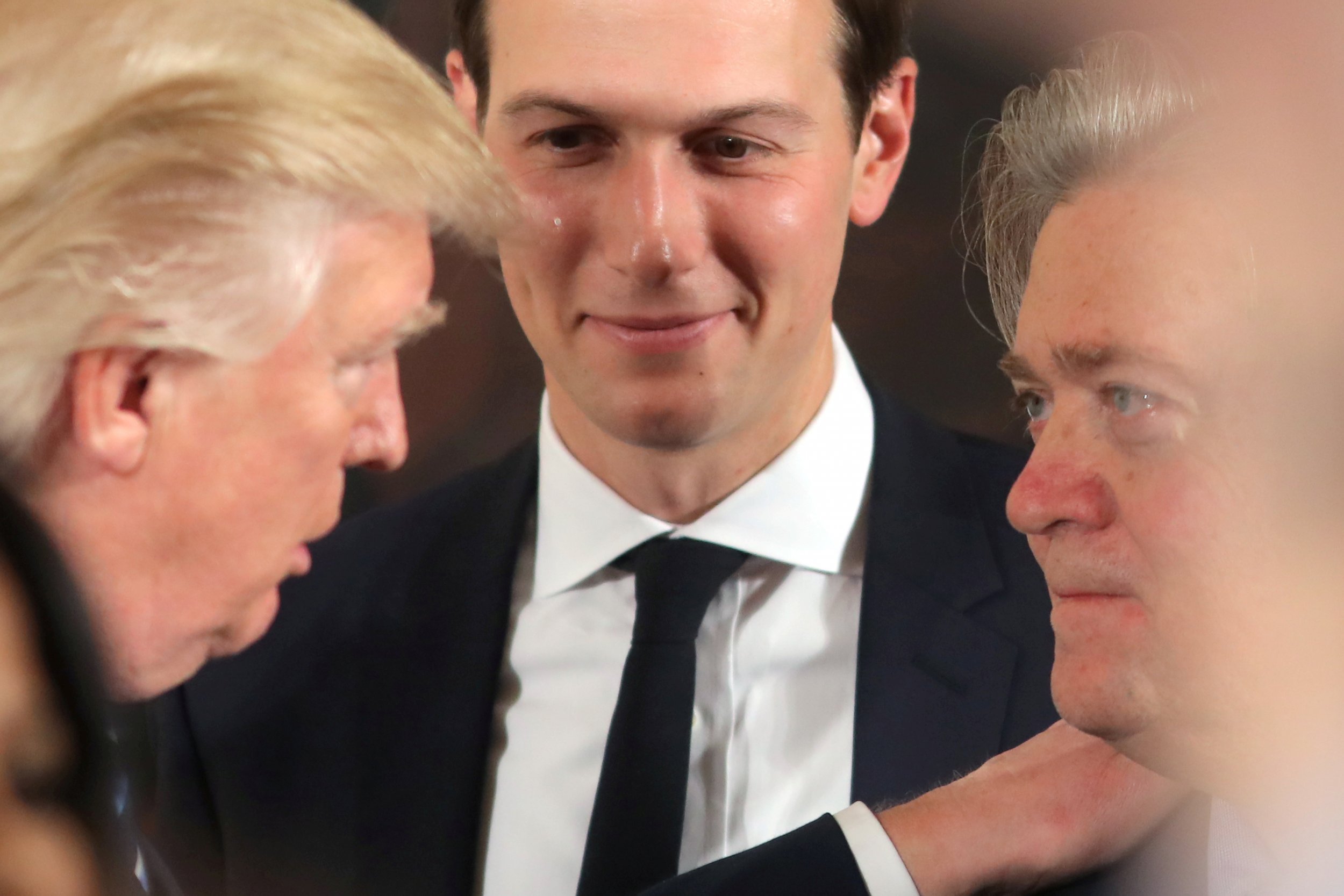
This article first appeared on the Council on Foreign Relations site.
President Donald Trump's evolving views on Israel and the Israeli-Palestinian conflict appear to be coming into greater focus as he prepares to welcome Israeli Prime Minister Benjamin Netanyahu to the White House.
Over the past few months, Trump has expressed two broad sentiments seemingly in tension with one another. In his first interview after the November 2016 vote, then President-elect Trump reiterated a previously expressed desire to end the Israeli-Palestinian conflict, calling it "the ultimate deal."
His desire to pursue such a deal has been matched, however, by a second strand of thinking, reflecting an admiration not only for Israel but also for its far-right settlers. The Israeli settlement movement opposes the idea of a Palestinian state and seeks Israel's annexation of the entire West Bank.
The president seemed to be reinforcing his earlier financial support for the settlement enterprise when he appointed staunch settler supporter and fundraiser, David Friedman, to become the next U.S. ambassador to Israel. Friedman immediately announced his intention to live in Jerusalem, not Tel Aviv, since, he suggested, President Trump would soon be recognizing the Holy City as Israel's capital.
For months, many Middle East observers have wondered how President Trump will reconcile these two strains in his thinking—the quest for the ultimate deal and his support for the settlers who claim all the land as their own. One indicator emerged over the weekend when Israel's largest circulation Israeli daily newspaper, Israel Hayom, published an interview with President Trump. The president had dined at the White House the night before with the free tabloid's pro-settlement founder and financier, Sheldon Adelson.
Related: U-turning Trump Now Labels Settlements Unhelpful to Peace
In a seeming rebuke to his dinner guest of the night before, President Trump clearly stated his concerns about continued Israeli settlement activity and their potential to impinge upon peace-making: "The [settlements] don't help the process, I can say that. There is so much land left. And every time you take land for settlements, there is less land left."
That could only have meant: land left for the Palestinians. But lest there remain any ambiguity, President Trump stated clearly: "I am not somebody that believes that going forward with these settlements is a good thing for peace."
At that moment, President Trump acknowledged not only the tension between continued settlement expansion and peace making efforts with the Palestinians, but his clear preference for peace-making. In doing so, Trump fell into line with 50 years of American thinking that has seen Israeli West Bank settlement expansion as unhelpful, at best.
Lest the Israel Hayom interview be taken as a one-off, Netanyahu disclosed on Monday to his cabinet that two days after his inauguration, President Trump had privately informed the prime minister of his intention to pursue an Israeli-Palestinian peace deal. Told by Netanyahu that the Palestinians are unwilling to make a deal, Trump's response was, according to the Israeli leader: "They (the Palestinians) will want, they will make concessions." Having been put on notice by Trump of his intention to pursue Israeli-Palestinian peace, Netanyahu told his cabinet: "We mustn't get into a confrontation with him."
How President Trump intends to pursue peace and how he will succeed where his predecessors have all stumbled is yet to be determined. It seems that President Trump himself is not yet sure. He is taking a decidedly different approach in launching his efforts than that of his predecessor, President Barack Obama, who announced his intention of resolving the Israeli-Palestinian conflict with fanfare just two days after his inauguration. In contrast, President Trump is gradually revealing his intentions while consulting in an uncharacteristically low-key fashion with regional partners.
Yet Donald Trump, in one stark and unmistakable way, is no different than the eight presidents that preceded him: He is clearly and unambiguously a peace-processor.
Robert M. Danin is senior fellow for Middle East Studies at the Council on Foreign Relations.
Uncommon Knowledge
Newsweek is committed to challenging conventional wisdom and finding connections in the search for common ground.
Newsweek is committed to challenging conventional wisdom and finding connections in the search for common ground.
About the writer
To read how Newsweek uses AI as a newsroom tool, Click here.








